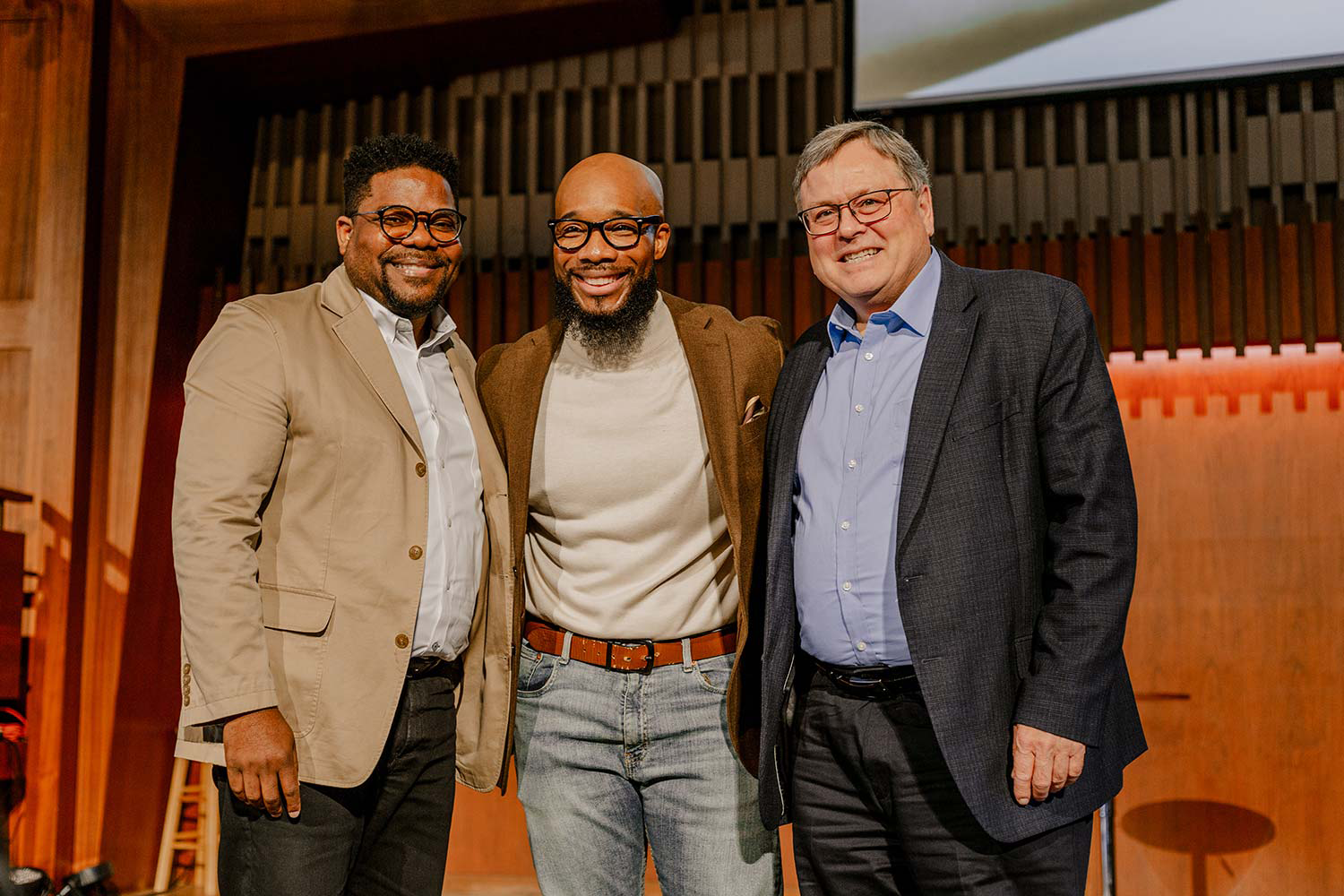
Singer and motivational speaker David Anthony Johnson (pictured, center) addressed Pacific Union College (PUC) students during a special Martin Luther King Jr. Community Service. Photo: PUC
The Pacific Union College (PUC) Church resonated with powerful words as David Anthony Johnson addressed students during a special Martin Luther King Jr. Community Service Day. The event, held in the sanctuary on Thursday morning, Jan. 11, 2024, as part of the Community Speakers Series, was dedicated to honoring King’s legacy.
The event began with a warm welcome and prayer from Religious Vice President Ashley Castro-Rodriguez. Vice President for Student and Spiritual Life Ryan Smith also welcomed students back for the beginning of the winter quarter.
Before showing a short video about the life of King, Smith said he is often remembered for the Civil Rights Movement and getting Black people to vote. “But it’s so much more than that,” he added. “Civil rights were important to so many groups within our country.”
Although Johnson is a familiar figure at PUC, it’s been nine years since he last spoke at the college. An accomplished orator and gospel singer, Johnson has been motivating students worldwide, guiding them to use their talents for positive impact in communities.
Johnson’s talk focused on “the three Moseses,” drawing parallels between Moses in the Bible, Harriet Tubman, and Dr. Martin Luther King Jr. He shared reflections from his childhood in St. Louis and how he was profoundly impacted by his mother, great-aunt, and great-grandmother —whose father had been enslaved in Tennessee before the Civil War. These women instilled in Johnson a love for singing and a deep connection to his heritage.
As Johnson sang several lines from well-known spirituals, including “Down by the Riverside” and “Swing Low, Sweet Chariot,” he explained how these songs served as coded messages for enslaved people seeking freedom. He also revealed that some enslaved people put codes into the quilts they made and even braided them into women’s hair.
Johnson said the third Moses, Dr. Martin Luther King Jr., “stood on the shoulders of the first two.” He emphasized King’s dedication to civil rights through love and pacifism — inspired by Indian pacifist and leader Mahatma Gandhi.
Beyond the famous “I Have a Dream” speech, Johnson highlighted one of King’s lesser-known sermons, “The Drum Major Instinct,” delivered to his congregation in Atlanta two months to the day before his assassination in 1968. In this sermon, King encouraged his parishioners to seek greatness through service, humility, and love.
Johnson told the students that near the end of his sermon, King expressed a desire to be remembered for serving others and not for his material accomplishments.
“He delivered his own eulogy,” Johnson said. “He preached the ‘Drum Major Instinct.’ We want to be first. True love comes by serving others.”
Johnson passionately delivered the conclusion of King’s sermon in the style and manner of the late civil rights leader.
“Yes, if you want to say that I was a drum major, say that I was a drum major for justice. Say that I was a drum major for peace. I was a drum major for righteousness. And all of the other shallow things will not matter. I won't have any money to leave behind. I won't have the fine and luxurious things of life to leave behind. But I just want to leave a committed life behind.”
In closing, Johnson encouraged PUC students, faculty, and staff to emulate that pattern of selfless love. “It’s the message of Dr. King,” he said, “and it’s the message of our Savior.”
